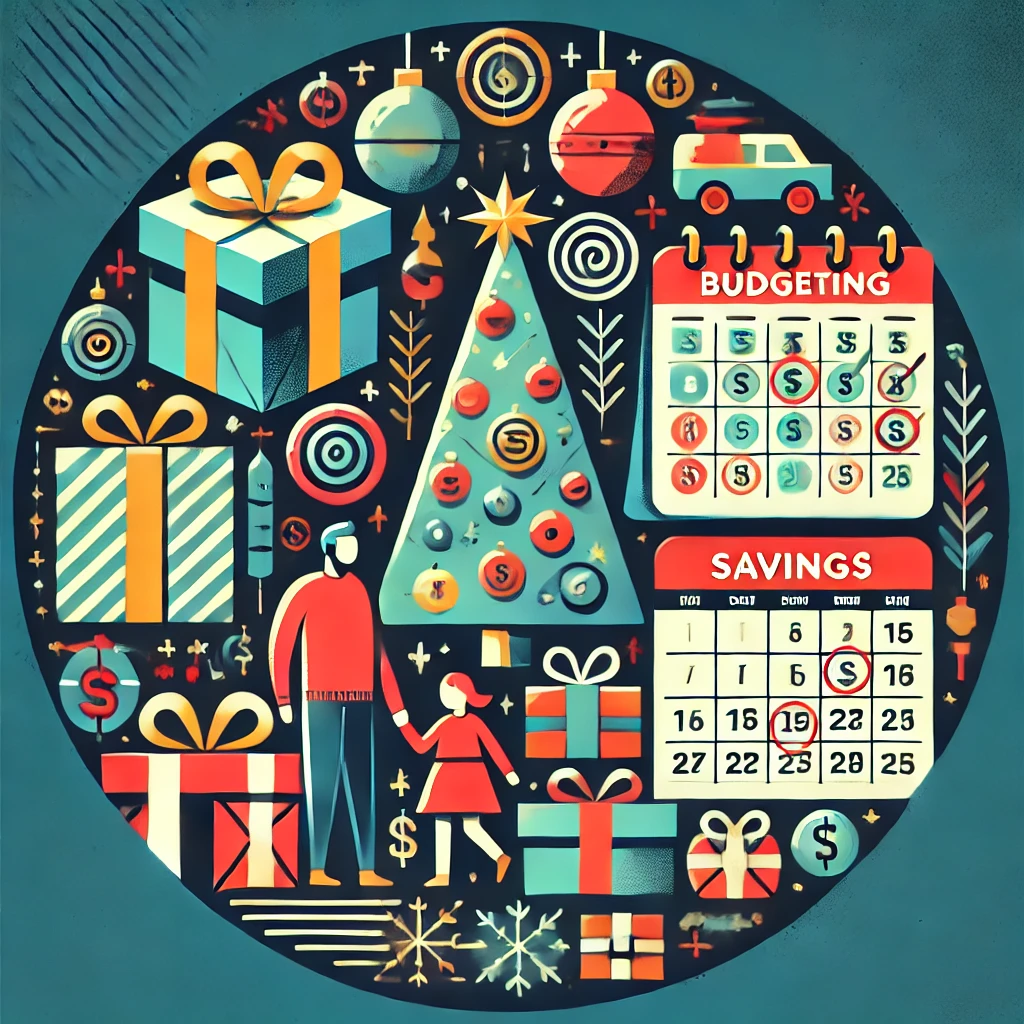The holiday season often brings with it a whirlwind of excitement, joy, and, unfortunately, financial stress. To navigate this festive period without falling into a debt trap, creating a comprehensive holiday spending plan is essential. This plan should encompass all anticipated expenses, including gifts, decorations, travel, and entertainment.
Start by assessing your overall financial situation. Take stock of your income, savings, and any existing debts. This will provide a clear picture of how much you can realistically allocate to holiday spending without jeopardizing your financial stability.
Once you have a grasp on your finances, outline your expected expenses. Break them down into categories such as gifts, decorations, food, and travel. For instance, if you plan to host a holiday dinner, consider costs for ingredients, tableware, and any additional entertainment.
By itemizing these expenses, you can set specific limits for each category. This structured approach not only helps in managing your finances but also allows for a more organized holiday experience. It’s crucial to remain flexible; unexpected expenses may arise, and having a buffer in your budget can alleviate stress.
Key Takeaways
- Create a holiday spending plan to avoid overspending and financial stress during the holiday season.
- Set a budget for gifts and decorations to ensure you stay within your financial means.
- Track and manage holiday expenses to stay on top of your spending and avoid going over budget.
- Make a list and check it twice before holiday shopping to prioritize and stay organized.
- Take advantage of sales and discounts to save money on holiday purchases.
Setting a Budget for Gifts and Decorations
Gift Giving on a Budget
To set a budget for gifts, start by determining how many people you plan to buy for and the amount you wish to spend on each person. This amount may vary based on your relationship with them, with more allocated for immediate family members compared to acquaintances or coworkers. Consider creating a spreadsheet or using budgeting apps to keep track of your gift list and spending limits.
Decorating on a Budget
Decorations can also add up quickly, from Christmas trees to lights and ornaments. To avoid overspending, decide on a budget for decorations early on and stick to it. You might find that you can repurpose decorations from previous years or even borrow items from friends or family. This not only saves money but also fosters a sense of community and sharing during the holiday season.
Intentional Spending for a Stress-Free Holiday
By being intentional about your spending in these areas, you can enjoy the festivities without the burden of financial strain. Remember, it’s the thought that counts, not the price tag. With a little planning and discipline, you can have a happy and financially stress-free holiday season.
Tracking and Managing Holiday Expenses
Once you have established your budget for gifts and decorations, the next step is to track and manage your holiday expenses diligently. Keeping a close eye on your spending is crucial to ensure that you remain within your predetermined limits. Utilize tools such as budgeting apps or spreadsheets to log every purchase made during the holiday season.
This practice not only helps in maintaining awareness of your spending habits but also allows for adjustments if you find yourself veering off course. Regularly reviewing your expenses can also highlight areas where you may be overspending or where you can cut back. For example, if you notice that your gift expenses are exceeding your budget, consider reevaluating your list or opting for more affordable alternatives.
Additionally, tracking expenses can help identify patterns in your spending behavior that may need addressing in future holiday seasons. By being proactive in managing your finances during this time, you can enjoy the holidays with peace of mind.
Making a List and Checking it Twice: Smart Holiday Shopping
The age-old adage of making a list and checking it twice holds significant weight during the holiday shopping season. A well-thought-out shopping list not only helps in staying organized but also minimizes the chances of impulse purchases that can derail your budget. Start by listing everyone you intend to buy gifts for along with specific ideas for each person.
This focused approach reduces the likelihood of wandering through stores aimlessly and succumbing to marketing tactics designed to entice consumers into buying unnecessary items. In addition to creating a list, consider prioritizing your purchases based on necessity and importance. For instance, if you have children or close family members who are expecting gifts, prioritize those purchases first before moving on to friends or acquaintances.
This strategy ensures that the most important gifts are secured early on, potentially avoiding last-minute stress and higher prices as the holidays approach. Furthermore, shopping early can provide access to better deals and a wider selection of items.
Taking Advantage of Sales and Discounts
The holiday season is synonymous with sales and discounts, making it an opportune time to save money while shopping for gifts and decorations. Retailers often offer significant markdowns during this period, especially during events like Black Friday and Cyber Monday. To maximize savings, research upcoming sales in advance and create a plan around them.
Sign up for newsletters from your favorite stores to receive notifications about exclusive deals or early access to sales. In addition to traditional sales events, consider utilizing cashback programs or reward points offered by credit cards or loyalty programs. These incentives can provide additional savings on purchases made during the holiday season.
However, it’s essential to remain disciplined; only take advantage of discounts on items that are already on your list rather than being swayed by the allure of a good deal on something unnecessary. By strategically navigating sales and discounts, you can stretch your holiday budget further while still acquiring meaningful gifts.
DIY Gifts and Decorations
The Personal Touch of Handmade Gifts
Creating handmade gifts not only adds a personal touch but can also be significantly more cost-effective than purchasing commercial products. Consider crafting items such as homemade candles, baked goods, or personalized photo albums tailored to the recipient’s tastes and interests.
Transforming Your Home with DIY Decorations
These unique gifts often carry more sentimental value than their store-bought counterparts. Similarly, DIY decorations can transform your home into a festive wonderland without breaking the bank. Engage in creative projects like making wreaths from natural materials or crafting ornaments from recycled items.
A Fun and Frugal Way to Bond with Loved Ones
Not only does this approach save money, but it also provides an opportunity for family bonding as everyone gets involved in the creative process. Hosting a DIY decoration night with friends or family can turn into a cherished tradition while simultaneously enhancing the holiday spirit.
Avoiding Impulse Buys and Overspending
The temptation to make impulse buys during the holiday season is ever-present, fueled by marketing strategies designed to create urgency and excitement around products. To combat this tendency, it’s crucial to remain disciplined and adhere strictly to your pre-established budget and shopping list. One effective strategy is to implement a waiting period before making any unplanned purchases; for instance, give yourself 24 hours to consider whether an item is truly necessary before committing to buy it.
Additionally, be mindful of emotional spending triggers that may lead to overspending during the holidays. Stress, nostalgia, or the desire to impress others can cloud judgment and result in financial decisions that may not align with your budgetary goals. Recognizing these triggers allows you to develop healthier coping mechanisms—such as engaging in activities that bring joy without incurring costs—thereby reducing the likelihood of succumbing to impulse buys.
Finding Ways to Save on Holiday Travel and Entertainment
Traveling during the holidays can be one of the most significant expenses for many families; however, there are numerous strategies to save money in this area as well. If traveling by air, booking flights well in advance often yields better prices compared to last-minute bookings. Additionally, consider flying on less popular days—such as midweek—when fares tend to be lower than weekend flights.
Utilizing fare comparison websites can also help identify the best deals available across various airlines. For those planning road trips or local outings during the holidays, consider carpooling with friends or family members to share fuel costs. Moreover, look for free or low-cost entertainment options in your area during the holiday season; many communities host free events such as parades, concerts, or festivals that provide festive experiences without straining your budget.
By being resourceful and planning ahead for travel and entertainment expenses, you can enjoy the holiday season while keeping financial concerns at bay.










